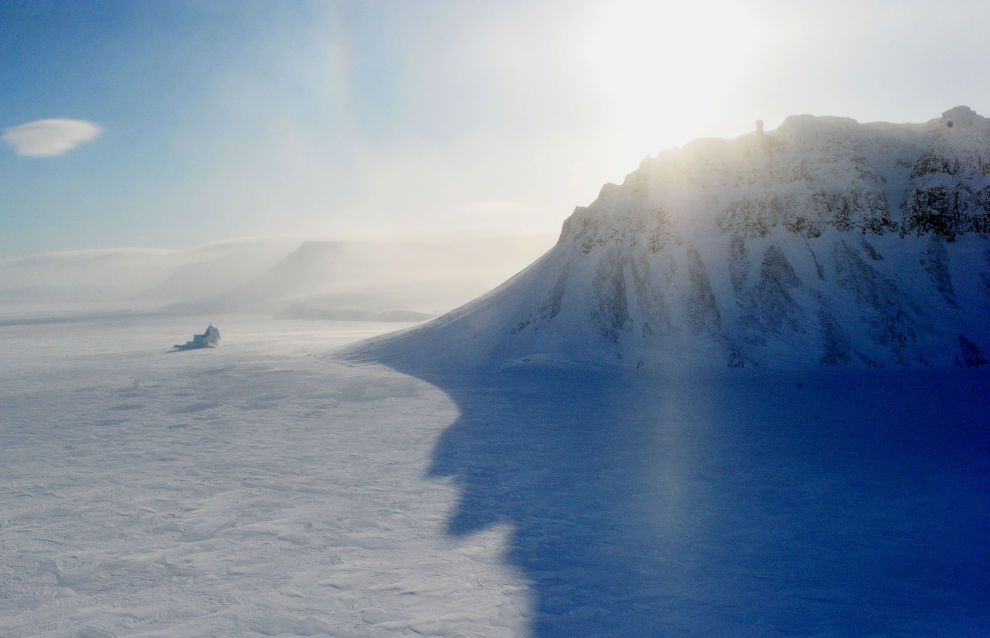Lev Voronkov: More profound cooperation between Arctic Council countries possible despite sanctions
In 2021-2023, the rotating chairmanship of the Arctic Council goes to Russia. Arctic.ru correspondent Kristina Khramtsova interviews Professor Lev Voronkov from the Faculty of Integration Processes at Moscow’s State Institute of International Relations (MGIMO) and an expert on modern Arctic geopolitical issues, on the possible impact of sanctions on Russia’s work within the Arctic Council.
Kristina Khramtsova: What are the advantages of the Arctic Council rotating chairmanship?
Lev Voronkov: The Arctic Council is not a traditional international inter-governmental organisation or an NGO. It was conceived and remains a high-level forum of international cooperation whose members work on and pass resolutions by consensus. The Ottawa Declaration, signed by representatives of the eight Arctic states, Denmark, Iceland, Canada, Norway, the Russian Federation, the United States, Finland and Sweden, set guidelines for Arctic Council activities and goals. Under the consensus principle, the Arctic Council’s member states and the forum’s permanent members that represent the main organizations of indigenous Arctic ethnic groups cannot impose their will on other members. The Arctic Council members voluntarily fulfil the resolutions in ways that meet their national interests and within state sovereignty.
The Arctic Council members introduced the rotating chairmanship to avoid giving the chair country any advantage. As the Arctic Council has no system of agencies, bodies or institutions, the chair country is responsible for organizing the council’s routine activities, including its task forces and expert groups, and to represent the council on the international scene. The Arctic Council Secretariat in Tromso works to assist the chair state in fulfilling its duties. The Arctic Council chair receives the right to promote the high-priority issues of its chairmanship and to focus the attention of all member states on them. However, the other forum members will support these issues to implement them more effectively.
Some time ago, Canada suggested establishing the Arctic Economic Council which currently facilitates cooperation between regional business communities. During the US chairmanship, the Arctic Coast Guard Forum was established on the initiative of the United States. It facilitates cooperation between member states’ border services in combatting threats to national security. This is largely because official Canadian and US documents regulating Arctic policies state expressly that, from now on, threats to their security include the hypothetical use of frozen Arctic Ocean expanses for organized criminal activity, weapons or drug trafficking and also for illegal migration. So cooperation between the Arctic countries’ border and coast guard services meets everyone’s interests.
In his remarks at the May 2021 Arctic Council ministerial meeting in Reykjavik, Russian Foreign Minister Sergei Lavrov called for holding a summit of Arctic states, as suggested by Finland some time ago. He also suggested that the Arctic Council member states expand their positive relationship to the military side by resuming multilateral dialogue between the Arctic states’ general staffs. He drew attention to Russia’s proposal to digitalize the linguistic and cultural legacy of the indigenous ethnic groups, which was approved by all Arctic Council members. Moreover, Mr Lavrov suggested further expanding cooperation between the Arctic Council and the Arctic Economic Council. The Arctic Council members supported Russia’s action program that contains over 100 different events.
At the same time, at the Arctic Council ministerial meeting in Reykjavik the ministers approved the council’s first strategic plan. Arctic Council members will be guided by this plan in their work during the next decade. The document reflects the common values and the joint aspirations of the eight Arctic states and six permanent representatives from among the indigenous ethnic groups.
It is important to note that, although certain member states are involved in anti-Russia sanctions, participants in the Reykjavik ministerial meeting have signed a joint declaration reaffirming the Arctic Council’s commitment to maintaining peace, stability and constructive cooperation in the Arctic region.
Kristina Khramtsova: Will the anti-Russia sanctions somehow affect Russia’s activity in the Arctic Council?
Lev Voronkov: No anti-Russia sanctions related to the Arctic Council have been declared, although certain sanctions in other areas have indirectly affected Russia’s activities in the Arctic. You may know that Russia responded to the EU’s sanctions with retaliatory sanctions, which is not exactly promoting cooperation between the EU and the Russian Federation. Of course, Russia would have responded to sanctions in the Arctic in a similar way, which, considering its role and authority in Arctic matters, would have resulted in a complete breakdown of the established system of managing Arctic affairs, and not a single Arctic country is interested in this.
Kristina Khramtsova: Do the sanctions somehow affect Arctic cooperation in general?
Lev Voronkov: Of course, the sanctions, especially the financial sanctions, are felt both indirectly and technologically. This is not easy for Russia or for international economic relations in general. All this will pass sooner or later when they (the West) understand that they won’t succeed in imposing conditions for cooperation on Russia and making it act the way the West wants, that Russia is an self-sufficient power.
As far as Arctic matters are concerned, the Arctic countries continue to cooperate effectively. For example, even during the sanctions, the Arctic countries concluded important agreements like cooperation between coast guard services and on scientific cooperation in the Arctic. The Arctic Council’s productive work as well as preparations for new agreements between the member states continues, something that was confirmed, in part, at the Arctic Council Ministerial conference in Reykjavik.
So, the public, ritual-like declarations in support of some common political policy of the West regarding Russia is one thing, but the real developments that are taking place among the Arctic states that have many common interests of a fundamental nature, specifically, the protection of their rights to the considerable hydrocarbon, mineral and biological reserves from encroachment by non-Arctic countries, is an entirely different matter; and these things undoubtedly, one way or another, help build up the potential for cooperation between the Arctic Council member states.
